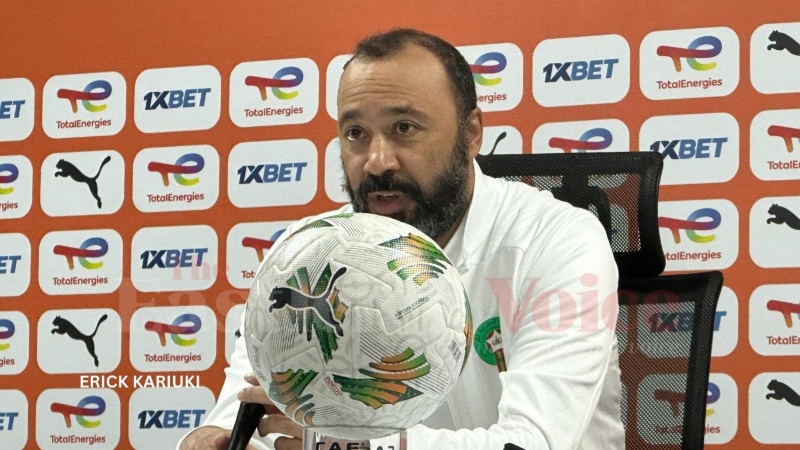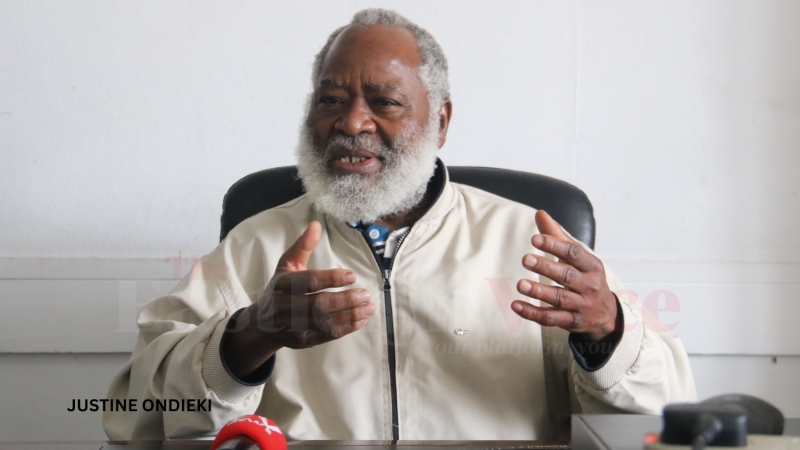How Kenya is leading Africa’s fight against cross-border crime

The Kenya Defence Forces (KDF) have set up strategic bases to deter both internal and external threats along the border counties.
Experts are calling for stronger trust between security agencies and local communities to secure Africa’s porous borders amid escalating transnational crime.
In Kenya, where borderlands with Somalia, South Sudan and Uganda remain vulnerable to smuggling and terrorism, officials stress that enhanced cooperation with local communities is essential to closing security gaps.
More To Read
- Kenya's Ibrahim Jillo elected to INTERPOL Africa Committee
- Interpol shares key advice to tackle cyber threats
- Three petitioners sue CS Duale, General Kahariri over deployment of KDF in protests
- 1,200 arrested, Sh12 billion seized in major Interpol cybercrime crackdown across Africa
- Nairobi hosts regional security talks as leaders push to seal porous borders against terrorism
- Murkomen: Chiefs to receive pay rise, firearms training in fresh welfare reforms
As such, on Friday, a security meeting held in Kainuk, a town in Turkana that borders Uganda and South Sudan, deliberated on the persistent insecurity along the inter-county border and emphasised the need for coordinated action, strengthened community relations and strict adherence to the rule of law.
"The discussions centred on cross-border banditry, the proliferation of illegal firearms and emerging threats that are undermining peace despite the ongoing Maliza Uhalifu initiative. It was agreed that seamless cooperation between the National Government Administration Officers (NGAO) and security agencies is key to effective command and control, while timely reporting of incidents remains critical for rapid response," the police said after the meeting.
Earlier in the week, the new Commander Kenya Army, Lt General David Ketter, assessed the ongoing military border operations in Marsabit, Wajir, Mandera and Garissa Counties and urged deployed officers to ensure peaceful co-existence among communities living within the border as a means to safeguard the border areas from aggression.
"We have witnessed illegal cross-border movements in the recent past, coupled with inter-communal conflicts in this region. You act as the buffer to these vices, and it is your responsibility to ensure our borders are safe from external aggression while ensuring peaceful co-existence among communities living within the border. We acknowledge your unrelenting efforts to restore and maintain peace to affirm Kenya's territorial integrity," said General Ketter.
The Kenya Defence Forces (KDF) have set up strategic bases to deter both internal and external threats along the border counties. The military efforts are complemented by the National Police Service (NPS) deployment within the border counties to address the challenges of refugees' spillovers, smuggling of drugs and commodities, irregular migration, human trafficking, and terrorism.
Additionally, a recent regional security meeting held last week heavily proposed the adoption of soft approaches towards the promotion of border security that complement the security operations.
The Nairobi caucus, a regional meeting attended by 15 African states and their international partners to discuss how to enhance border security to deter and disrupt terrorist movement, highlighted the need to embed border security on the national development agenda in order to build community resilience and adopt the use of advanced surveillance technology to complement the achievements made by security officials.
Speaking at the meeting, Interior PS Raymond Omollo noted that the geographic concentration of terrorism along the Kenyan borders is not a coincidence but proof of weak surveillance, fragmented jurisdiction and limited coordination that creates permissive environments for terrorist exploitation.
"We must also remember that the borders themselves are not the problem. In fact, borders are not barriers, they are opportunities for connection, cooperation and shared prosperity," said Omollo, adding that the key task for security agencies remains transforming the borders into security fortresses that help neutralise threats' networks.
In that regard, Omollo proposed integrating border communities into early warning systems through livelihood support programmes and civic education initiatives. "We build trust and resilience from the bottom up," he said.
Citing a decision by the European Union (EU) to open its member states' borders, the Ambassador of the European Union to Kenya, Henriette Geiger, stressed that effective border security must strike a delicate balance between security and open trade.
"We have legitimate trade interests and we have to secure those, with our legitimate interests of our security. This is not an easy task, and every country has to find their own solution, but we cannot sacrifice one on the altar of the other. That is clear, and the EU has learnt those lessons by opening its borders across the 27 member states. This is a continuous balancing act between security and open trade or persons and goods," said Geiger.
The Intergovernmental Authority on Development's Centre of Excellence for Preventing and Countering Violent Extremism (ICEPCVE) has been helping member states map terror threats through its early warning system and promote resilience through dialogues with key stakeholders.
"At a regional level we work very closely with the civil society, youth and women, religious and community leaders; and media practitioners in sharing experiences, engaging in dialogue but more so to enhance their capacities in preventing methodologies which include; integrating gender perspectives in prevention and counter terrorism work as well as lining of counter messages to undermine the narratives that we have seen shared by violent extremists and terrorists groups," said Dr Martha Njiiri, the Head of Communications at ICEPCVE.
Top Stories Today















































